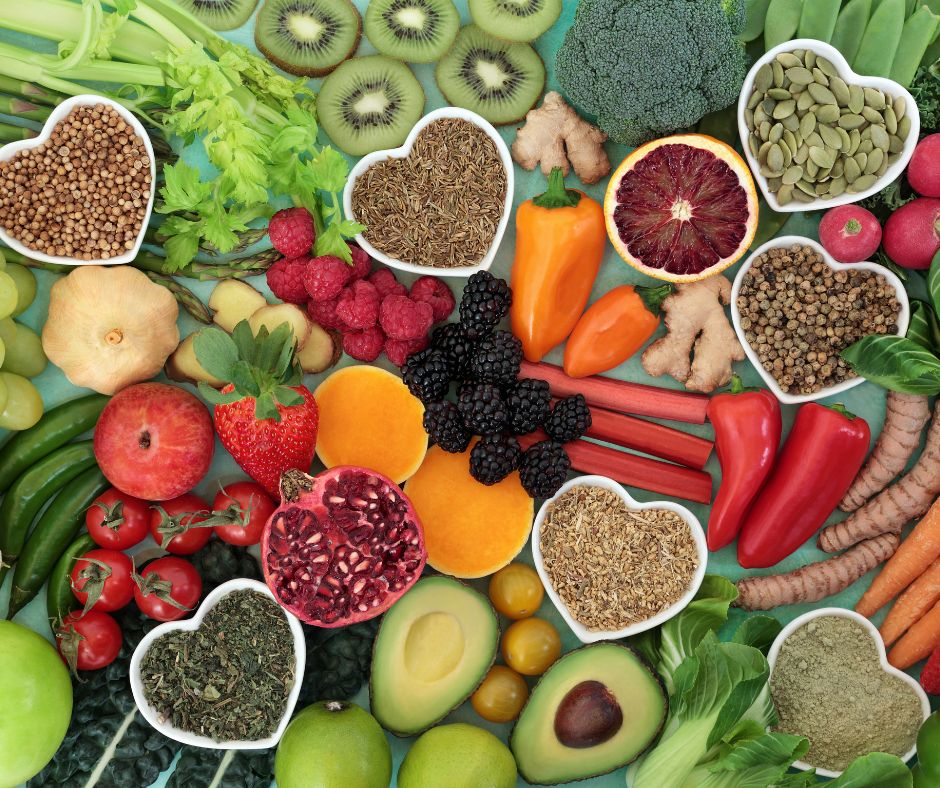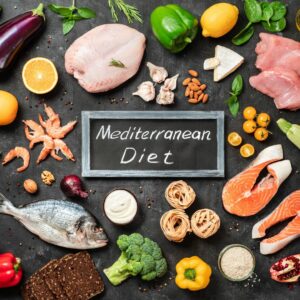In Australia, heart disease is the number one killer. In acknowledging and supporting World Heart Day we’ve developed a blog post providing clear and practical nutritional guidance to help prevent cardiovascular disease. From teenagers to seniors, it promotes straightforward dietary changes that can be implemented at any stage of life.
Here’s how to protect your heart through nutrition, from adolescence to your golden years.
Teenagers: Build a strong foundation
Teen years are crucial for establishing long-term eating habits, and it’s the perfect time to start building a heart-healthy diet.
1. Eat a variety of fruits and vegetables: Teens should aim to consume a rainbow of fruits and vegetables each day. These foods are packed with essential vitamins, minerals, and antioxidants that help protect the heart from an early age.

2. Limit processed foods: Fast food, sugary drinks, and processed snacks are tempting, but they often contain high levels of salt, sugar, and unhealthy fats, all of which can lead to high blood pressure and cholesterol over time.
3. Choose whole grains: Swap refined grains like white bread and sugary cereals for whole grains like oats, brown rice, and wholemeal bread. These provide fibre, which helps to lower cholesterol and improve heart health.
Adults: Maintain and improve heart health
By adulthood, life gets busy, and convenience often takes priority. However, making heart-conscious food choices is key to maintaining and improving cardiovascular health.
1. Moderate alcohol consumption: While some studies suggest that moderate alcohol intake, particularly red wine, can be heart-healthy, excessive drinking raises blood pressure and contributes to heart disease. Stick to recommended guidelines or consider reducing alcohol altogether.
2. Reduce sodium intake: High salt intake is linked to high blood pressure, a major risk factor for CVD. Avoid processed foods and limit the use of table salt, opting for herbs and spices to flavour your meals instead
3. Prioritise healthy fats: Replace saturated and trans fats found in fried and processed foods with heart-healthy fats like avocados, olive oil, nuts, and seeds. Omega-3 fatty acids, found in fatty fish like salmon and tuna, are particularly beneficial for reducing inflammation and lowering the risk of heart disease.


Seniors: Support a healthy heart in later years
As we age, the risk of cardiovascular disease increases, but it’s never too late to benefit from healthy eating.
1. Eat lean proteins: Choose lean proteins like chicken, turkey, and plant-based sources such as lentils and chickpeas. Limit red meat consumption, as it can raise cholesterol levels.
2. Focus on fibre: Seniors should increase their intake of soluble fibre found in oats, beans, and fruits. This helps to lower cholesterol levels and reduce the risk of CVD.
3. Stay hydrated: Proper hydration is important for overall heart health. Seniors should aim to drink plenty of water throughout the day and consume hydrating foods like cucumbers, tomatoes, and watermelon.
Prevention starts early, but It’s never too late.
Whether you’re just starting out in life or enjoying your retirement, adopting heart-healthy eating habits can make a big difference. Remember, it’s not about a perfect diet, but about making small, sustainable changes that support long-term cardiovascular health.

By focusing on nutrient-dense foods, reducing processed and high-sodium options, and prioritising heart-healthy fats, you can enjoy a strong heart for many years to come.
For healthy food ideas for you and your family, visit our recipes for fresh, new and nutritious options.





